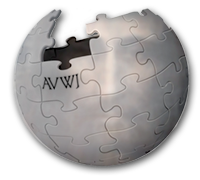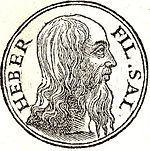
Wiki Details

Eber (Hebrew: עֵבֶר, romanized: ʿĒḇer; Biblical Greek: Ἔβερ, romanized: Éber; Arabic: عؘابِر, romanized: ʿĀbir) is an ancestor of the Ishmaelites and the Israelites according to the Generations of Noah in the Book of Genesis (Genesis 10–11) and the Books of Chronicles (1 Chronicles 1).
General info from Wikipedia.org

